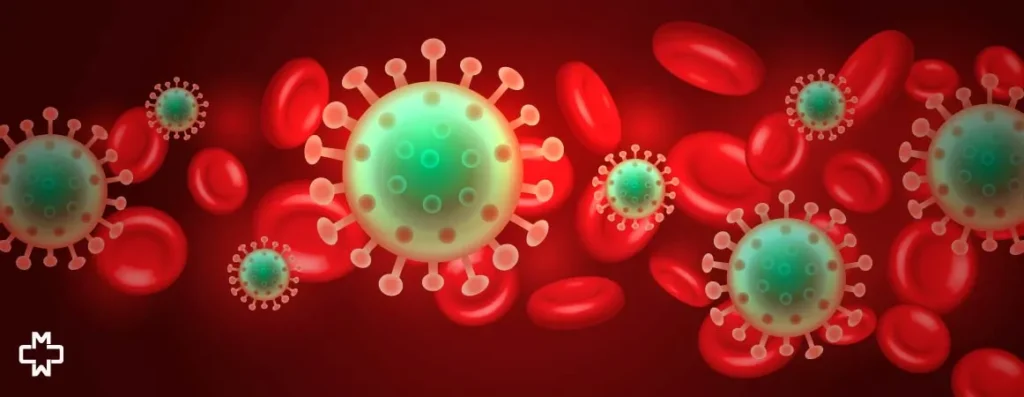The novel coronavirus has now affected around 7M worldwide (as of 2:04 pm CEST, June 10, 2020, reported to WHO). You are most likely aware of the common symptoms of the coronavirus disease, which are flu, fever, cough, difficulty breathing, and fatigue. But another threat reported in many patients that can be potentially fatal is blood clots.
When someone has a severe COVID-19 case their body starts producing a cascade of antibodies in response to fight it which can cause inflammation. That inflammation may affect blood vessel walls and increase the risk of clotting.
Studies show that an alarming number of COVID-19 patients in the ICU developed clotting. Some doctors noticed that COVID-19 patients were forming clots in their legs, even though they were on blood thinners. Other documented issues with dialysis machines for COVID-19 patients, like clots in the blood of patients, would block the system tubing.
Complications caused by blood clots
If left untreated, blood clots can cause serious problems such as heart attacks and strokes.
According to the doctors at MMA, clots can also develop in other parts of the body, which in turn can damage the heart, kidneys, liver, intestines, and other tissues. Clots may obstruct the blood supply to the fetus in pregnant Covid-19 patients, leading to complications like miscarriages and low birth weight.
Why are blood clots life-threatening for COVID-19 patients?
COVID-19 patients already suffer from breathing problems and the blood clots can further damage the lungs and decrease their capacity to provide oxygen. If the clots block a major artery in the lungs, it can be deadly under any condition, and more so in patients with severe symptoms.
Handling blood clots in COVID-19 patients
Doctors at dozens of hospitals around the globe are looking for answers while trying to measure the risks of coronavirus patients to clots and test drugs for treatment or prevention of them.
– Disclaimer –
This blog is for informational & educational purposes only, and does not intend to substitute any professional medical advice or consultation. For any health related concerns, please consult with your physician, or call 911.
-
About The Author
Dr. Syra Hanif M.D.Board Certified Primary Care Physician
Dr. Syra Hanif is a board-certified Primary Care Physician (PCP) dedicated to providing compassionate, patient-centered healthcare.
Read More







